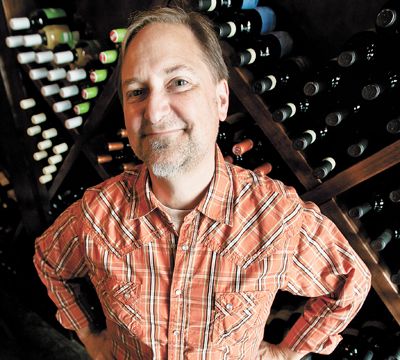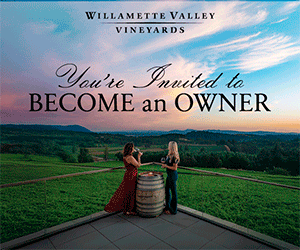Meet the Master

DOUG FROST is a Kansas City author who writes and lectures about wine, beer and spirits.
In 1991, he passed the rigorous Master Sommelier examination and two years later became America’s eighth Master of Wine. He was the second person in history to complete both exams, and 16 years later, he is still one of only three people in the world to have achieved both these remarkable distinctions.
Frost’s love of wine began in the late ’70s as a waiter and wine steward. He was a fine wine wholesaler in the Kansas City area for 14 years and, in that capacity, represented most of the best wineries and estates from America and the world.
Frost is an author of three published books: “Uncorking Wine,” released in the summer of 1996; “On Wine,” released in the fall of 2001; and his latest, “Far From Ordinary: The Spanish Wine Guide,” released in October 2005.
His writing résumé also includes contributor to the “Oxford Companion of Wine” and “The World Atlas of Wine” by Hugh Johnson, and The Wine Report, an annual report edited by Tom Stevenson. He writes about wine and spirits for many publications, including The San Francisco Chronicle, The Underground Wine Journal, Drinks International, Practical Winery & Vineyard, Wines & Vines, Wine & Spirits, Cheers Magazine, Santé Magazine and Epicurious.com. He is also the beverage columnist for the James Beard award-winning food section of the Kansas City Star, as well as Hemispheres Magazine, Missouri Life and Fine Cooking.
Frost is the host of “Check, Please!,” a weekly public TV show filmed in Kansas City. He is also the wine and spirits consultant for United Airlines worldwide, the founder and director of the Jefferson Cup Invitational Wine Competition and is the head judge and founder of the Mid-American Wine Competition.
As a founding partner of a new spirits and cocktail educational organization, BAR (Beverage Alcohol Resource), Frost has created a fantastic resource with his partners, Dale DeGroff, Steve Olson, Paul Pacult and David Wondrich. BAR opened for business in June 2006; Cheers Magazine selected BAR and its founders as Innovators of the Year for 2007.
Frost lives with his wife and two children in Kansas City, where he spends his spare time listening to his massive punk rock and weird music collection.
OWP: How and when did you first become interested in wine?
The first glass of wine I ever tasted — to my knowledge — was Louis Martini Pinot Noir Special Selection 1968, a pretty auspicious beginning. I was 15 years old. I remember it pretty well; I thought, “Hmm, so this is wine? I could like this stuff.” Indeed, my uncle offered it to me with a basic description of Pinot Noir versus Cabernet Sauvignon that I still consider pretty damned accurate. While I don’t remember the exact language, he told me that Cabernet was king, and that it was the grape that most enthusiasts collected and drank. BUT then he told me that he had some bottles of another grape called Pinot Noir, and it was the sort of wine some people overlooked because it was more subtle, maybe more elegant. And at the age of 15, voice cracking, pimply-faced, I thought, “Elegant? Oh, that’s me.”
OWP: Do you prefer Old World or New World Pinot Noir?
In general, I find Old World Pinot Noir more interesting than New World Pinot Noir. Though both regions now suffer from excessively hot growing conditions — at least in most vintages and in most areas. Burgundy — that’s what we mean by the Old World — has typically been cooler than all but a few areas of the New World. And that means better balance, lower alcohols and higher acids; that’s what Pinot Noir means to me.
OWP: In a battle of the best Pinot, who would win: Oregon or California?
With all due respect to my California friends, this is not even a contest for my palate. Oregon has far better balance — again, lower alcohols, higher acids, more resolved tannins — than most California Pinot Noir. Vintages such as 2010 and 2011, which have been overlooked or even been denigrated by the wine press, contain some of the most elegant New World Pinot Noir that has ever been produced.
OWP: In your opinion, how can Oregon wine better market itself?
Don’t pretend that vintage variance doesn’t exist; that’s the sort of silliness the Californians like to promulgate. Talk about vintage influence; celebrate it. And please don’t let the lesser examples of cool vintages such as 2010 or 2011 color the public’s perception of those vintages. It’s true that the first wines released are usually the cheapest and least interesting. In complex vintages such as 2010 and 2011, they will ruin the market for what are complex, complete, remarkable wines that we may never again see in our lifetimes.
OWP: How do you feel about the point system in regard to wine?
I think assigning points to a wine is like assigning points to sex with your spouse: a misleading concept that is even more a really bad idea. It’s a reductive way to talk about what should be a transforming experience. And flavor is subjective; the 100-point system suggests a single, universal palate that can decide what is good and what is great. What a load of crap. We have different sensitivities to flavor and aroma; we like different things. Duh.
OWP: If you could choose only one, would you make, write about, teach or market wine? Why?
Definitely teach; I’m on a mission to turn people on to flavor and aroma.
OWP: Your Twitter name is winedogboy… What’s the “dog” part about?
I’ve been “winedog” for much of my life. Some of my friends tagged me with it — is it dog or Doug? And “wineboy” for much of my career as well — as in, go fetch me this wine, wineboy — so I just put them together.










